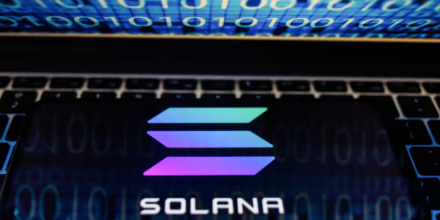Treasury Department lifts sanctions on Tornado Cash
Quick Take The move comes after an appeals court ruled that the Office of Foreign Assets Control exceeded its authority by sanctioning Tornado Cash in November 2024. Additionally, a U.S. District Court in Texas ordered Tornado Cash’s sanctions to be reversed in January. OFAC sanctioned Tornado Cash in 2022 after claiming North Korean cyber hackers used the platform to launder illicitly obtained cryptocurrency.

The United States Department of Treasury removed economic sanctions against Tornado Cash, a crypto protocol known for privatizing onchain transactions, after sanctioning the platform nearly three years ago.
The Treasury Department removed Tornado Cash and several associated digital wallet addresses from the OFAC specially designated nationals (SDN) list, according to a Friday release.
The move comes after an appeals court ruled that the Office of Foreign Assets Control (OFAC), an agency within the Treasury, exceeded its authority by sanctioning Tornado Cash in November 2024, and a U.S. Disctrict Court in Texas ordered the sanctions to be reversed in January.
OFAC sanctioned Tornado Cash in August 2022 after claiming cybercriminals, particularly those tied to North Korea and its hacker ring, the Lazarus Group , used the platform to launder cryptocurrency procured from illicit activity. The U.S. government, along with Japan and South Korea, stated that North Korea uses crypto thefts to illegally fund ballistic missiles and other weapons of mass destruction projects.
Tornado Cash obscures the origins of cryptocurrency transactions by pooling together and redistributing funds in a process known as "mixing."
"Digital assets present enormous opportunities for innovation and value creation for the American people,” said Secretary of the Treasury Scott Bessent in a statement. “Securing the digital asset industry from abuse by North Korea and other illicit actors is essential to establishing U.S. leadership and ensuring that the American people can benefit from financial innovation and inclusion.”
Lazarus Group has been tied to numerous high-profile crypto exploits — most recently, the $1.4 billion Bybit hack , but also the $600 million exploit of the Axie Infinity sidechain Ronin and the $28 million hack of the crypto exchange Deribit .
Disclaimer: The content of this article solely reflects the author's opinion and does not represent the platform in any capacity. This article is not intended to serve as a reference for making investment decisions.
You may also like
Content Token Boom: Is Base's "Creator Economy 2.0" a Revolution or Just Another Game for Whales to Profit From?
Content Coins and Creator Coins have been proposed as new monetization solutions for creators on Rollup chains, generating revenue through token issuance and transaction fees. However, these models face issues such as speculation, market manipulation, and misaligned incentives. Summary generated by Mars AI This summary was produced by the Mars AI model, and the accuracy and completeness of its content are still being iteratively improved.

JPMorgan calls for "overweight" on China: Buy on dips, strong gains expected next year!
Wall Street giants are sounding the call to action, with JPMorgan and Fidelity International both indicating that now is an excellent time to enter the market, as the potential returns next year will far outweigh the risks!
Infinex will launch a Sonar token sale, aiming to raise $15 million.
